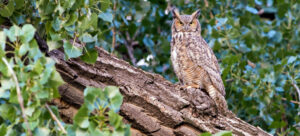Members of European Parliament MEPs have overwhelmingly rejected an attempt by a UK Conservative MEP to oppose a full ban on neonicotinoid pesticides that have been linked to bee decline.A total of 43 MEPs on the Environment Committee voted against the proposal by Julie Girling MEP, which spoke out against plans by the European Commission to extend current restrictions on three neonicotinoid pesticides to all crops.
Eight MEPs backed the motion, with seven abstentions.
Friends of the Earth nature campaigner Sandra Bell said: “We’re delighted MEPs are backing our bees and have overwhelmingly rejected this attempt to oppose a complete ban on bee-harming neonicotinoid pesticides.
“There is mounting scientific evidence supporting the European Commission’s proposal to extend the ban to more crops, and this should now be backed by national governments.
“Michael Gove must demonstrate his environmental credentials by backing an extension of the ban – and committing to keep it post-Brexit.”
On wednesday UK Conservative MEP Julie Girling put forward a resolution to the Environment Committee of the European Parliament opposing a proposal from the European Commission to extend the current restrictions on three neonicotinoid pesticides to most crops.
Currently the restrictions only apply to flowering crops attractive to bees but EU scientific advisors
now warn that neonicotinoids can pose a risk to bees when used on other crops. Because of the way they persist in the soil and move in the environment they can be taken up by wildflowers or flowering crops grown subsequent to the treated crop.
MEPs voted on the resolution on Thursday with a resounding vote against the resolution with 43 voting against, 8 in favour, and 7 abstentions.
Friends of the Earth has been calling for the ban to be extended to all crops and has found that farmers are already finding ways to protect their crops [1]without bee harming pesticides.
The UK Government position on extending the ban is not known, but it’s advisors on the Expert Committee on Pesticides recently noted that “Member’s initial view was that there did not appear to be scientific justification for the proposed approach, but that the building suite of evidence suggests that the use of neonicotinoid seed treatments may pose a greater hazard to pollinators than originally thought.” – FoE, UK




